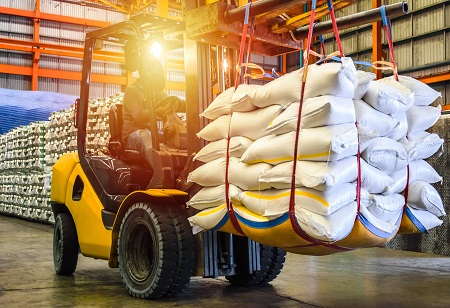
Consumers today are highly conscious about the food they consume and they look for assurance when they select the food items. Therefore, trustworthy end-to-end transparency of the food supply chain will enable them in authenticating the origin and the complete farm-to-fork process of the food product. The acquaintance of the food industry with the Internet of Things technology in agriculture facilitates farmers, suppliers, processors, retailers as well as consumers to take informed decisions. Furthermore, Internet of Things also assist food sectors with supply chain traceability, food safety as well as accountability. Apart from these, the IoT network cuts down wastage, expenses and risks associated with the process to a greater extent. Let us find out some of the important benefits which Internet of Things offers to the food supply chain and how it has revolutionized its role in food safety management, tracking & traceability and logistics.
Enhances food safety
The implementation of IoT in the food supply chain industry has reduced the risks associated with foodborne illness outbreaks to a huge extent. While sensors monitor every single phase of production & shipment, the real-time temperature checking technology helps the sectors in closely administering every step of food safety procedures for delivering effective cold chain management. Furthermore, IoT tracking & traceability features will help in discovering the origin of contamination early on to avoid further outbreaks. “Robotics can also offer more flexibility to end-of-the-line operations, like packaging. Smart machines based around a single control system with robotic controls can enable faster communication of control, safety and process information and more accurate control of machine movements,” stated Andrew Smith, Regional Segment Leader – Process & Packaging OEMs at Rockwell Automation.
Accurate predictions
The Internet of Things enables food manufacturers with an accurate prediction of future issues. For example, the Internet of Things sensors send alerts regarding the weather, and this can help in identifying conditions favorable for disease that cause pathogens as well as foresee potential pest infestations. This significantly enables manufacturers to plan an action & reduce the risk of damage. One such company offering solution that has streamlined soil health monitoring is Cropin. The company has integrated sensors & other IoT sensors that send alerts about the weather. Cropin’s SmartFarm significantly helps the manufacturers to plan an action and lower the risk of damage.
Reduces wastage
As per a report by the United Nations, seventeen per cent of the food that is produced is wasted every single year around the world. Apart from the monetary losses, it also affects the environment owing to the rise in the levels of carbon di oxide in the atmosphere. IoT monitors the condition of food products & sends real-time data to the authorized individual and in this way, the assigned individuals can keep a track of the expiry date of the products & easily dispose of them promptly. By leveraging IoT, manufacturers can start refrigeration monitoring alerts while the storing temperature fluctuates decreasing food wastage.
Maintains supply chain transparency
The Internet of Things also enable food manufacturers in acquiring customer loyalty. Implementation of IoT tracking as well as traceability throughout the whole supply chain helps in maintaining transparency for consumers and in addition to it, IoT also makes it convenient for both manufacturers as well as consumers to track food items, although international & domestic rules may amplify the intimacy of the supply chain. “The food and beverage industry is ‘more complex and fast-changing’ than ever before,” according to the assessment of Andrew. “Today’s consumers are more outspoken and connected. For example, they can shop for food and other essential items from the comfort of their own homes with the ability to easily view all their options and compare prices from other supermarkets with just a few clicks,” he observed. Besides, transparency has some additional benefits, that include the effective inventory management, cost-effectiveness etc. Also, manufacturers can find out the issue & solve the incompetence in the supply chain accordingly.
Enhances Logistics
The Internet of Things technology effectively enables supply chain traceability which in turn helps in keeping a track of the processes right from storage to shipping to the sale points. RFID transmitters & the Global Positioning Systems serve the purpose efficiently. Furthermore, the advanced RFID tracking technology helps in better visibility of the food supply chain as it collects the relevant information for tracking the location of the food item with the Global Positioning System, that enables stakeholders evaluate their performance globally. The applications of IoT in food supply chain are indefinite. It facilitates supply chain traceability & significantly decreases wastage. Furthermore, the implementation of IoT solutions have brought some huge transformations in food safety as it assists food manufacturers in maintaining their highest quality standards every time without fail.

